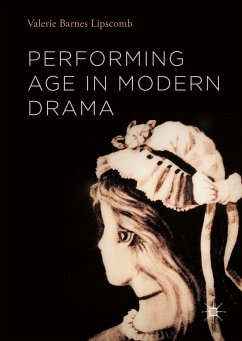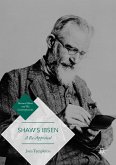Act your age. This common admonition provides the springboard for this study, which rests on the premise that age is performative in nature, and that issues of age and performance crystallize in the theatre.
Dramatic conventions include characters who change ages from one moment to the next, overtly demonstrating on stage the reiterated actions that create a performative illusion of stable age. Moreover, directors regularly cast actors in these plays against their chronological ages. Lipscomb contends that while the plays reflect varying attitudes toward performing age, as a whole they reveal a longing for an ageless self, a desire to present a consistent, unified identity. The works mirror prevailing social perceptions of the aging process as well as the tension between chronological age, physiological age, and cultural constructions of age.
Dieser Download kann aus rechtlichen Gründen nur mit Rechnungsadresse in A, B, BG, CY, CZ, D, DK, EW, E, FIN, F, GR, HR, H, IRL, I, LT, L, LR, M, NL, PL, P, R, S, SLO, SK ausgeliefert werden.
"Lipscomb skilfully reconsiders the centrality of aging in the western canon from Thornton Wilder to Paula Vogel, theorizing the performativity of age through an analysis of both text and performance. ... its breadth is impressive, offering a suitable primer for emerging and established scholars interested in age studies or a more general audience interested in considering the centrality of age in the modern western theatre's most celebrated dramas." (Benjamin Gillespie, Modern Drama, Vol. 60 (3), 2017)









